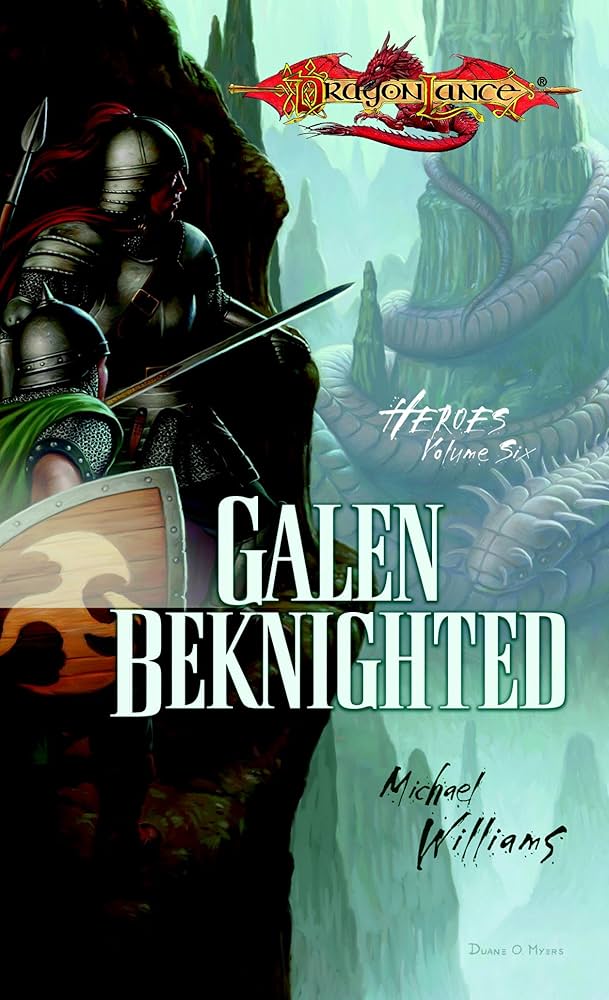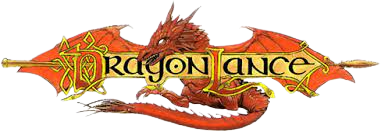Galen Beknighted

Table of Contents
ToggleOverview
Galen Beknighted picks up the tale of Galen “Weasel” Pathwarden, now a few years older but still comically unsuited to the world of Solamnic knighthood. After somehow surviving the events of Weasel’s Luck, Galen now finds himself on the verge of actual knighthood—despite his cowardice, sarcasm, and remarkable talent for being in the wrong place at the right time.
Told once again in memoir style, with Galen as the deeply unreliable narrator, the book is equal parts satire, character study, and loving send-up of chivalric traditions. Beneath the jokes, though, lies a real story of self-worth, transformation, and growing into one’s values.
Main Character: Galen “Weasel” Pathwarden
- Once a self-serving, cowardly noble, Galen has matured… slightly.
- Still sarcastic, prone to embellishment, and deeply flawed, but now grappling with the weight of potential—and his strange sense of loyalty to the knight who once inspired him.
- The book is essentially Galen’s attempt to understand what it means to be a knight—and whether he could ever truly be one.
Supporting Characters
- Sir Bayard Brightblade – Galen’s old master and the idealistic knight who once represented all that is noble. Now a more weathered, politically involved figure, still full of honor but faced with a more cynical world.
- Lady Enid Di Caela – Bayard’s noble love interest, now a political figure herself, further complicating Galen’s view of romance, knighthood, and duty.
- The Pathwarden Family – Galen’s scheming, arrogant relatives, who continue to both interfere with and complicate his life.
- The Scorpion – A mysterious and recurring villain from the previous novel, continuing to manipulate events from the shadows.
Setting
- Takes place mostly in Solamnia, the heartland of the Knights of Solamnia, during a period of political instability and moral drift.
- The once-legendary knighthood is now fractured, struggling to remain relevant in a world that mocks or forgets its ideals.
- Galen navigates noble courts, battlefield camps, and religious shrines—often with hilarious discomfort.
Plot Summary
A Knight in Name Only
At the start of the novel, Galen is being considered for knighthood, an absurd idea even to himself. His deeds have technically earned him the right—but his own character is… not quite up to par.
He’s sent on a pilgrimage of sorts, a last-chance quest to prove his worth and understanding of honor. Along the way, he must balance:
- The political ambitions of his family,
- The collapsing ideals of the Solamnic order,
- And his own inner doubts and growing conscience.
The Mirror of Knighthood
Throughout his journey, Galen is forced into roles where he must make real choices—not just escape danger or lie his way out. These include:
- Defending the innocent (even when no one’s watching),
- Choosing truth over comfort,
- Facing down betrayal without running.
And slowly, almost imperceptibly, Galen begins to change—not because he wants to be a knight, but because he starts acting like one.
A Test of Honor
In the climactic scenes, Galen must stand trial—not just in the eyes of the knighthood, but before his own conscience. The Scorpion returns with a final test of Galen’s loyalties, forcing him to choose between his safety and his principles.
He passes—not through skill or strength, but through clarity, courage, and sacrifice.
The Ending
Galen is knighted at last, but not because he fits the mold. He is knighted because he redefined what knighthood can mean—less about perfection, more about perseverance, truth, and self-awareness.
The memoir ends with Galen, older and still very much himself, reflecting on how he became a hero entirely by accident—and maybe that’s what made it real.
Themes
- Honor vs. Appearance – The central tension is between what knights claim to be and what they actually are or could be.
- Unlikely Heroism – Galen’s story proves that even the unworthy can rise—not through destiny, but through hard choices and persistence.
- Satire of Tradition – The book skewers chivalric codes, political machinations, and noble arrogance, all while still loving the idea of knighthood.
- Growth Through Failure – Galen fails constantly—but learns, adapts, and quietly builds something that resembles real courage.
- Legacy and Storytelling – As a memoir, the book is full of embellishments, contradictions, and narrative flair, raising the question: Whose version of history gets remembered?
Tone & Style
- Witty, self-aware, and voice-driven, told entirely from Galen’s perspective.
- Filled with clever turns of phrase, ironic commentary, and footnotes that both mock and revere classic fantasy tropes.
- Balances humor with surprising emotional depth, especially as Galen confronts the realities of war, love, and betrayal.
- Think The Princess Bride meets Don Quixote—with a touch of Blackadder.
Reception
Galen Beknighted is widely loved for:
- Providing one of the most unique voices in Dragonlance fiction
- Its sharp humor and unexpected emotional impact
- A satisfying and earned character arc for a protagonist who begins the series as a joke
- Serving as both critique and celebration of knightly ideals
Critics might note:
- Its dense narrative style and dry humor won’t suit all readers
- The satire may feel too subtle or literary for those expecting a more traditional fantasy adventure
But for those who enjoyed Weasel’s Luck or want something different and clever in the Dragonlance world, it’s a hidden gem.
Final Thoughts
Galen Beknighted is a brilliant, funny, and surprisingly moving exploration of what it means to be a knight—not in stories, but in truth. Galen is a hero not because he was meant to be, but because he chose to be, in spite of himself.
Recommended for:
- Fans of Weasel’s Luck and character-driven satire
- Readers who enjoy dry humor, flawed protagonists, and coming-of-age tales
- Anyone curious about knighthood, legacy, and storytelling through an unconventional lens
“He did not ride forth with banners or destiny. He rode because it was raining and no one else would go.”
